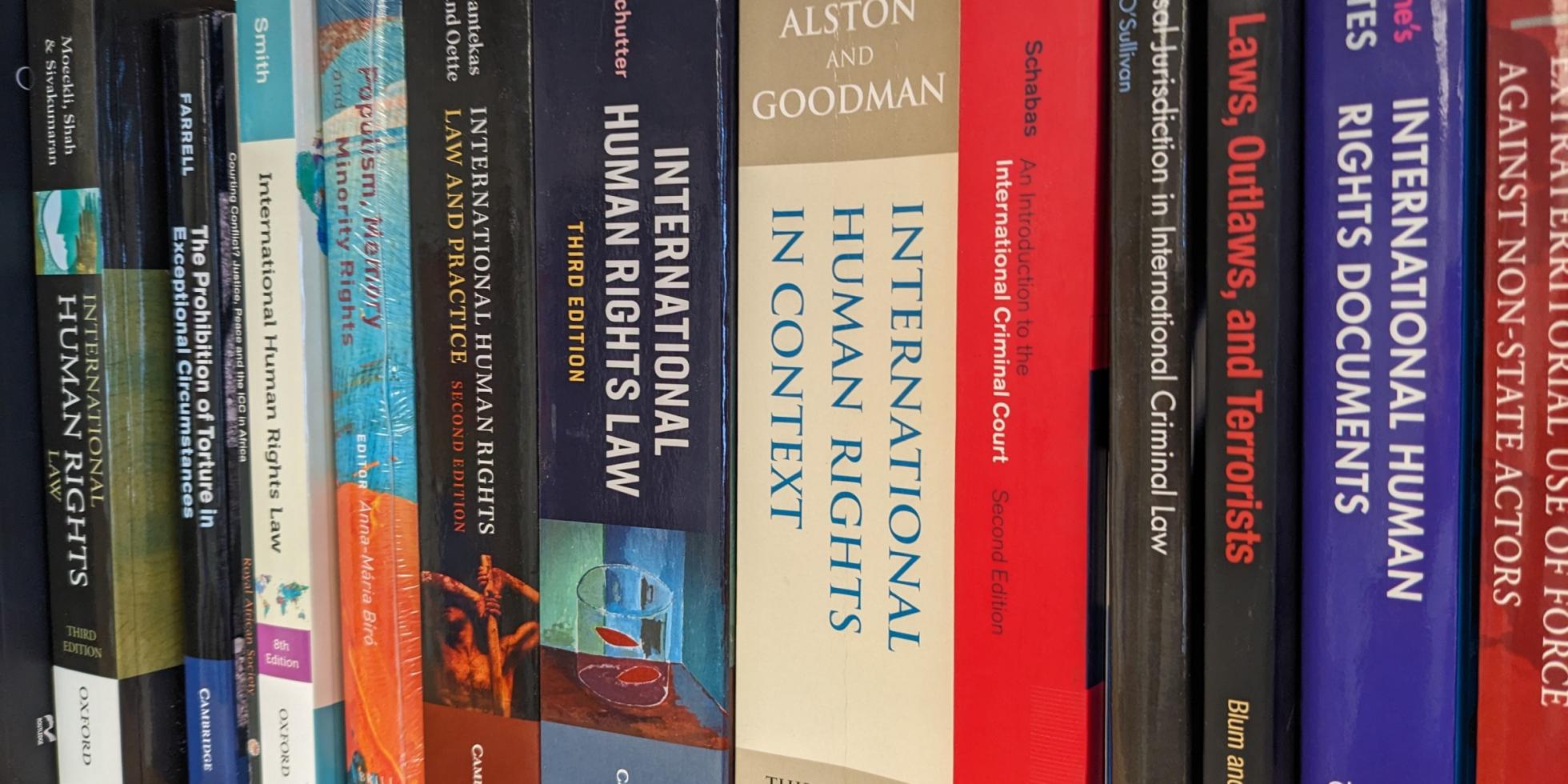The virtual human rights library brings together resources from multiple libraries and information services, both internal and external, to create an online hub dedicated to the study of human rights. This curation is unique in its interdisciplinary concerns and focuses on writings and research from social sciences, humanities, and law.
The virtual library is continually updated with the latest academic research in issue areas, as well as with relevant films, recorded conversations, and other forms of media.
Please Note:
The Virtual Library is usable by all visitors, but the hyperlinks to materials listed are for UChicago community members with a CNet ID and password.
Please direct feedback and suggestions to Kathleen Cavanaugh.
For technical assistance, email pozenhumanrights @ uchicago.edu.
Searchable Database
Click into the dropdowns to select the disciplines, keywords, and media type for your search, and then hit "Apply."
12 Million Black Voices
12 Million Black Voices, first published in 1941, combines Wright's prose with startling photographs selected by Edwin Rosskam from the Security Farm Administration files compiled during the Great Depression. The photographs include works by such giants as Walker Evans, Dorothea...
Becoming Human: Matter and Meaning in an Antiblack World
Rewriting the pernicious, enduring relationship between blackness and animality in the history of Western science and philosophy, Becoming Human: Matter and Meaning in an Antiblack World breaks open the rancorous debate between black critical theory and posthumanism. Through the cultural...
Beloved
Sethe, its protagonist, was born a slave and escaped to Ohio, but eighteen years later she is still not free. She has too many memories of Sweet Home, the beautiful farm where so many hideous things happened. And Sethe’s new...
Captivating Technology: Race, Carceral Technoscience, and Liberatory Imagination in Everyday Life
From electronic ankle monitors and predictive-policing algorithms to workplace surveillance systems, technologies originally developed for policing and prisons have rapidly expanded into nonjuridical domains, including hospitals, schools, banking, social services, shopping malls, and digital life. Rooted in the logics of...
Citizen: An American Lyric
Claudia Rankine's bold book recounts mounting racial aggressions in ongoing encounters in twenty-first-century daily life and in the media. Some of these encounters are slights, seeming slips of the tongue, and some are intentional offensives in the classroom, at the...
Dark Matters: On the Surveillance of Blackness
In Dark Matters, Simone Browne locates the conditions of blackness as a key site through which surveillance is practiced, narrated, and resisted. She shows how contemporary surveillance technologies and practices are informed by the long history of racial formation and...
Demonic Grounds: Black Women and the Cartographies of Struggle
In a long overdue contribution to geography and social theory, Katherine McKittrick offers a new and powerful interpretation of black women's geographic thought. In Canada, the Caribbean, and the United States, black women inhabit diasporic locations marked by the legacy...
Don't Call Us Dead
Award-winning poet Danez Smith is a groundbreaking force, celebrated for deft lyrics, urgent subjects, and performative power. Don't Call Us Dead opens with a heartrending sequence that imagines an afterlife for black men shot by police, a place where suspicion...
Habeas Viscus: Racializing Assemblages, Biopolitics and Black Feminist Theories of the Human
Habeas Viscus focuses attention on the centrality of race to notions of the human. Alexander G. Weheliye develops a theory of "racializing assemblages," taking race as a set of sociopolitical processes that discipline humanity into full humans, not-quite-humans, and nonhumans...

